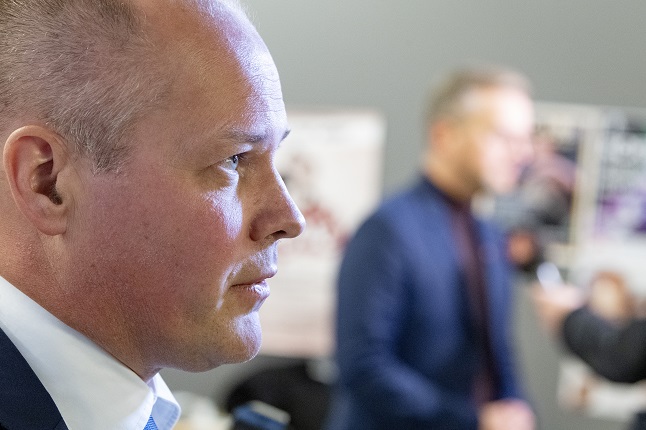Article first published on February 7th, and updated on June 29th.
Why are we talking about this now?
In early February, the right-of-centre Moderate Party forced the issue of work permit regulations when it put forward its own set of proposals to change the system.
Just days later, the centre-left Social Democrat-Green government announced its own plans to launch an inquiry to review the labour immigration systems.
This inquiry was jointly agreed with the Centre and Liberal parties, whose support is needed in parliament. All four parties signed a policy agreement in January, the January Deal, which included a pledge to “solve the problem of deportation of skilled workers”, but it's only now that it has been formally put forward.
The government decided on launching the inquiry on February 6th, and some parts of the report will be presented by February next year, with others scheduled for November 2021.
What are the issues addressed in the proposals?
Both the government and Moderate Party proposals address the problems of deportations of skilled talent from Sweden, and abuse and fraud linked to the work permit system.
But legislation which was intended to crack down on exploitation of foreign workers, especially in industries such as berry-picking, had the unintended consequence that many workers with legitimate employers had their permit renewals rejected. This resulted in hundreds of skilled workers being ordered to leave the country due to minor errors in their paperwork, often relating to small discrepancies over holiday pay or insurance policies.
So this is one of the problems that the major Swedish parties have pledged to solve.
As of June, the inquiry is also tasked with proposing law changes designed to put an end to so-called 'talent deportation'.
At the same time there are also concerns that current legislation leaves loopholes than can still be exploited by unscrupulous employers.
In an opinion article signed by the migration spokespeople of the four 'January Deal' parties, they stated that there was “broad consensus in parliament to address the problems of cheating, fraud and abuse” in the Swedish labour market.
But the way the parties intend to resolve these issues is different.
What is included in the government proposals?
The government's proposals included a so-called 'talent visa' that would allow individuals with skills the Swedish labour market needs to move more easily. In addition, the government proposed simplification of the labour migration process in general, and in particular making it easier for foreign workers to travel during processing time.
They also included a commitment to stop the deportations of skilled workers over minor mistakes, something that has caused problems for hundreds of workers since legislation was tightened a few years ago.
And a maintenance requirement for work permit holders who wish to bring family members to Sweden would also be on the cards.
What did the opposition say?
One of the big differences between the Moderate Party's and the government's stance relates to the so-called spårbyte or “track change”, the system which allows rejected asylum seekers to apply for a work permit to stay in Sweden in certain circumstances. The Moderates would ban this completely, while the government proposed making this easier.

Moderate Party leader Ulf Kristersson and migration policy spokesperson Maria Malmer Stenergard. Photo: Anders Wiklund/TT
Another difference is that the Moderates would increase the salary requirement for receiving a work permit, by requiring applicants to be earning a full-time salary, while the government proposals included analysis of problems linked to part-time salaries.
The Moderates have criticized the government proposals as “half-measures”, while Justice Minister Morgan Johansson has argued that the government plans address the same issues as those put forward by the opposition.
Has anything already been done to stop deportations of skilled workers?
Yes, but campaigners say progress has been much slower than hoped.
One of the biggest milestones was a landmark court ruling in December 2017. The Swedish Migration Court of Appeal ruling in the case of a pizza baker in Jokkmokk set a precedent for a principle of so-called helhetsbedömning or 'overall assessment', which meant that a small error should no longer be enough to derail an otherwise good application.
The number of rejected permit extensions has declined since then, but there have not been changes to actual legislation, despite a pledge to “solve the problem of deportation of skilled labour” in the January Agreement.




 Please whitelist us to continue reading.
Please whitelist us to continue reading.
What types of documents do I need to present to the authority before I can be able to legally marry in Sweden
[email protected]